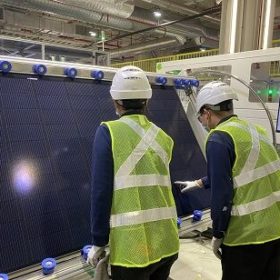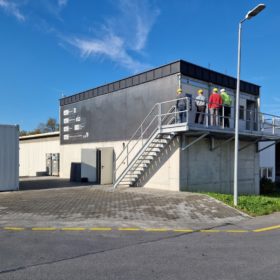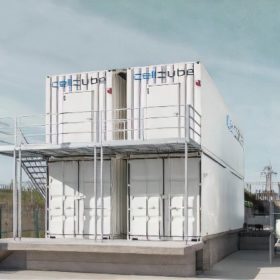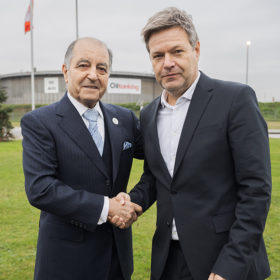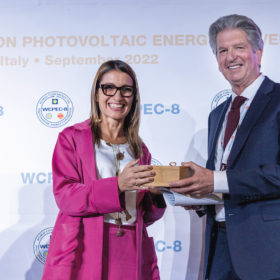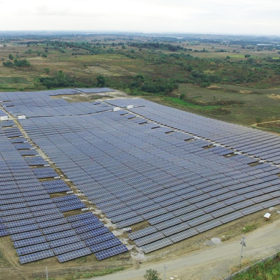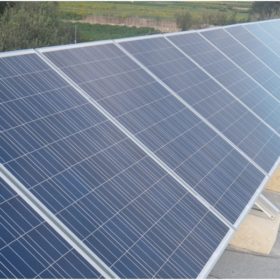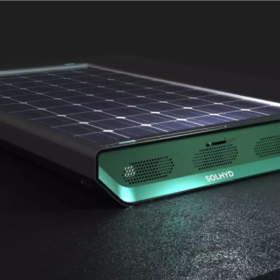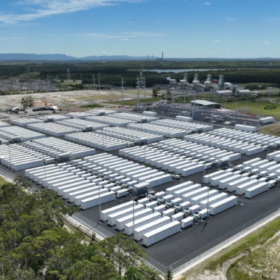Neoen signs connection agreement for Goyder South project
Renewable energy developer Neoen has inked a connection agreement with network operator ElectraNet which will allow for the first stage of its $3 billion (USD 2 billion) Goyder South project to connect to the grid in South Australia, paving the way for future wind, solar and battery storage opportunities at the site.
REC Group rolls out new solar module for rooftop market
Norway-based solar manufacturer REC Group has commenced production of the fifth generation of its TwinPeak module series, offering improved power outputs from 395 W to 415 W and efficiencies ranging from 20.1% to 21.1%.
Lithium-vanadium battery for renewables storage
AMG Advanced Metallurgical Group has energised its first hybrid storage system based on lithium-ion batteries and vanadium redox flow batteries in Germany. The system reportedly combines the advantages and electrochemical properties of both storage technologies.
CellCube eyes Australia for 8 GWh flow-battery manufacturing facility
Australian renewables developer North Harbour Clean Energy will team with European battery energy storage systems supplier CellCube to establish a vanadium redox flow battery manufacturing and assembly facility in Australia with a projected capacity of up to 1 GW/8 GWh per annum.
Germany to import green ammonia from Saudi Arabia from 2026
Germany has decided to build its first green ammonia import terminal in Hamburg, in collaboration with Air Products. Egypt, meanwhile, has signed $128 billion of hydrogen framework agreements.
Weekend read: A sustainability swan song
Pioneering PV researcher Martin Green has received an abundance of accolades over his 50-year career of fundamental solar research with teams at the University of New South Wales (UNSW). That contribution was further recognised on Sept. 26, when he picked up the WCPEC-8 Award in Milan, Italy. Green spoke with pv magazine about the role of technologies such as PERC cells and his efforts to advance non-toxic thin film semiconductors for the tandem cells of the future.
ReNu explores green hydrogen deal with 3.5 GW solar project developers
Australian independent power producer ReNu Energy has signed a deal with the developers of a proposed 3.5 GW solar-plus-storage facility in Indonesia to explore the potential large-scale production of green hydrogen for supply into Southeast Asia and beyond.
New algorithm to identify underperforming strings in PV systems
German researchers have created an algorithm to predict and identify string yield losses or underperforming strings without additional weather data. It could be used to inspect modules, strings, arrays, inverters, and transformers.
Floating ‘artificial leaf’ for solar-to-hydrogen production
A team of scientists from the University of Cambridge have developed lightweight floating photocatalyst devices that produce green hydrogen and syngas. The leaf-like photoelectrochemical devices show potential for scalability.
Hydrogen-producing rooftop solar panels nearing commercialisation
KU Leuven researchers have developed rooftop panels that capture both solar power and water from the air. Like traditional PV modules, hydrogen panels are also connected, but via gas tubes instead of electric cables. The researchers are now preparing to bring the tech to the mass market via a spinoff company.

